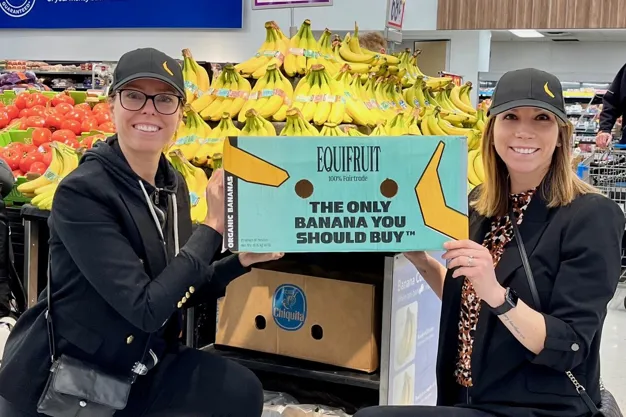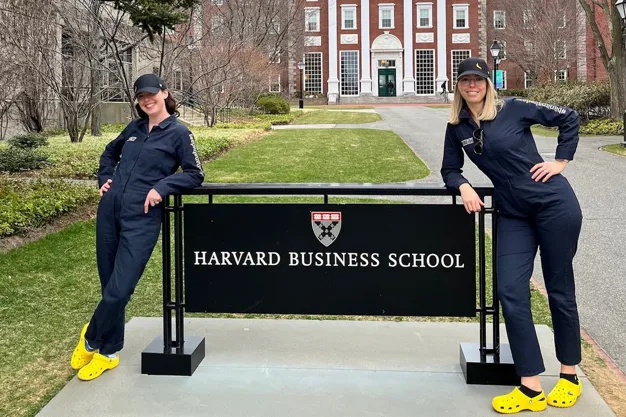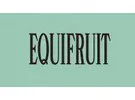The appetite for Fairtrade bananas continues to grow in Canada. As Fairtrade America and Fairtrade Canada recently reported, over the past six years, Fairtrade banana volumes have increased in the past six years by 466 percent in Canada (compared to 15 percent in the United States).
It's something Kim Chackal, director of sales and marketing for Equifruit is well aware of. After all, Equifruit was recently awarded Walmart Canada's Fairtrade organic banana business in British Columbia and Ontario. "That's been a game changer for us," she says. "I think the industry always looks to Walmart to see what they're going to do on innovation, on price, etc. and we're proud to partner with them and see that they've made this commitment to sourcing their organic bananas on Fairtrade international terms. We're excited to bring a fresh take to market the Fairtrade aspect of the business and hopefully capture new segments from within the Walmart shopper base."
She believes the organic banana side market is leaning towards Fairtrade sourcing as the new normal. "We see categories switching over," says Chackal, adding that its brand continues to be chosen for programs not only because of its founding principal of Fairtrade commitment but also its approach towards helping consumers understand what Fairtrade sourcing actually is.
 Equifruit at Walmart Canada.
Equifruit at Walmart Canada.
Waiting list of growers
To meet that growing demand is also growing supply it seems. Chackal says the current supply of Fairtrade bananas coming into Canada continues to be strong and greater than this time last year. The company has growers in Ecuador, Peru, Mexico, Colombia and Nicaragua and it has a waiting list of growers wanting to work with the Canadian company. "We have enough bananas to meet our needs and we're ready to scale," she says.
That supply stayed steady out of Ecuador, even during the unrest seen in the country just a month ago. "Like our growers, we took it one day at a time," Chackal says. "Out of all our growers in Ecuador, there was one group of growers that needed to take a week off to recalibrate and make sure that they were safe. Otherwise, our supply chain was miraculously uninterrupted and our growers are safe as well. It was unsettling for a moment. We were bracing ourselves for the worst."
 Last year, Harvard Business School approached Equifruit about basing a formal case study on the company.
Last year, Harvard Business School approached Equifruit about basing a formal case study on the company.
The U.S. market
Meanwhile as for demand south of the border, the U.S. market is something the company's been focused on for the last three years. What has helped raise the company's profile is not only their involvement in IFPA--Equifruit's Madison Hopper sits on the association's marketing council while Chackal sits on the Women's Fresh Perspectives Committee--but a year ago, Harvard Business School approached the company about basing a formal case study on it. That case study is expected to reach fruition this year. "Having the Harvard name behind us elevates the credibility of the brand," she says.
While awareness in the U.S. is growing, Chackal says there's still plenty of work to be done given that less than one percent of bananas in the U.S. are traded on Fairtrade terms. "However the appetite for the category is growing rapidly. I think we're going to see a lot of development in the coming years." She also adds that in its annual contract pricing negotiated for 2024, pricing has come in competitively. "That was reflected through our negotiations for our shipping and trucking contracts so we feel very confident about the pricing we presented in 2024 and it's going to allow us to access new markets."
 For more information:
For more information:
Kim Chackal
Equifruit
Tel: +1 (514) 993 7736
Kim.chackal@equifruit.com
www.equifruit.com
